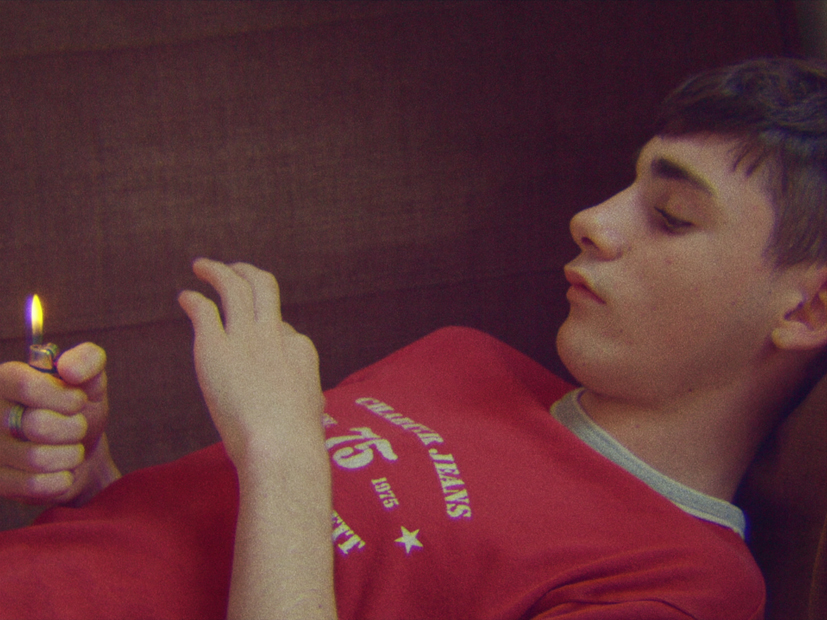Lunch with Samedi
Interview with Hannibal Mahé, director of Samedi [Saturday]
What inspired you to make Samedi? Did you conduct research on “juvenile deliquents”?
Since I direct music videos, I’m around young people a lot, I see and listen to their stories. Some of them can really inspire you as a writer if you’re there to hear them. The starting point for Samedi was a brief getaway. The characters and the specific route come from different sources.
Though he’s still quite young, the main character is determined, and he shows great self-confidence. How did you come up with his character?
Like any scriptwriter – by looking at the people I met. He clearly owes his sense of determination to life on the street.
Why did the period of adolescence interest you?
Because everyone is familiar with that period, since we all have to pass through it, and I’m not old enough to be able to talk about old age.
In Samedi you show the extent of the violence and lack of pity that teenagers are capable of. Were you trying to show the reality of childhood – a world that adults often seem to forget? Are you interested in the turn from spontaneity to brutality?
The streets are violent. My characters are too, in their own way, because that’s largely where they come from. It’s not a reality you can ignore if you want to talk about runaway kids. What interested me in particular in this story is in the answer to the next question.
Why did you want to show the different turns of event that lead him down the wrong path? How did you envision your character losing his bearings?
In Samedi, the character is running from his past, he wants to live in the present and he doesn’t think about the future. Some people will say he’s on the wrong road, others will see that he simply wants to take advantage of what life gives him.
Your main character is both touching and annoying. How did you manage to script that duality?
By loving a character whom I’d otherwise hate if he weren’t in a film. A character whose decisions all go counter to the viewer’s sense of logic.
Did you write the film the way it is, or did you consider it a part of a larger whole, with a “before”, an “after”, a “why”?
For me personally as a scriptwriter, working on the “before” is an absolute must. Everything else is up to the viewer.
In the film, you tackle the question of young people and their relation to alcohol and drugs. Why did you want to show that part of their life?
Because it’s part of their everyday existence.
The sentencing of minors always sits somewhere between education and repression. At what point does education become pointless for dealing with children’s real lives? At what point does repression become a good solution? Can repression lock a young person into a spiral of delinquency? What about education?
If we could just have clear answers to those questions, it would solve a great deal of problems…
Your character, who is in the midst of self-emancipation, seems to have broken off ties with his family, who are apparently not out looking for him. Is emancipation possible in this framework? Does it in fact require breaking off ties to one’s family?
Not necessarily. The character’s mindset is very simple: you’re either with me or you’re against me. Family, law, friends – he doesn’t make any exceptions. His family would like it if he turned himself in. He deems that impossible, so he burns all his bridges with what’s left of his family.
How did you envision the adult characters and what effect did you want to display?
The same way as for the young people – by starting from real models. But also by showing that adults have their own sets of problems. The upside of which is that no one gives a shit about the main character’s problems.
Do you think short films are effective in questioning the meaning of “family” and of “macro” social units?
Short films are exercises. You can tackle the sorts of subjects you’ve mentioned, but given their length, it’s a lot harder to do them justice than in a feature film (be it a fiction or a documentary), which more easily allows for a discussion of the given topic(s).
Samedi was either produced, co-produced or self-financed with French funds. Did you write the film with this “French” aspect in mind: making movie references, building a specific context (in a particular region, for example) or inserting characteristically French notions?
Samedi was self-financed in France and shot in Belgium. As such, it was put together within the constraints of the Anderlecht region and uses numerous Belgian characteristics. For that reason, I see the film as rather more Belgian than French.
.
Samedi is being shown in National Competition F1.








